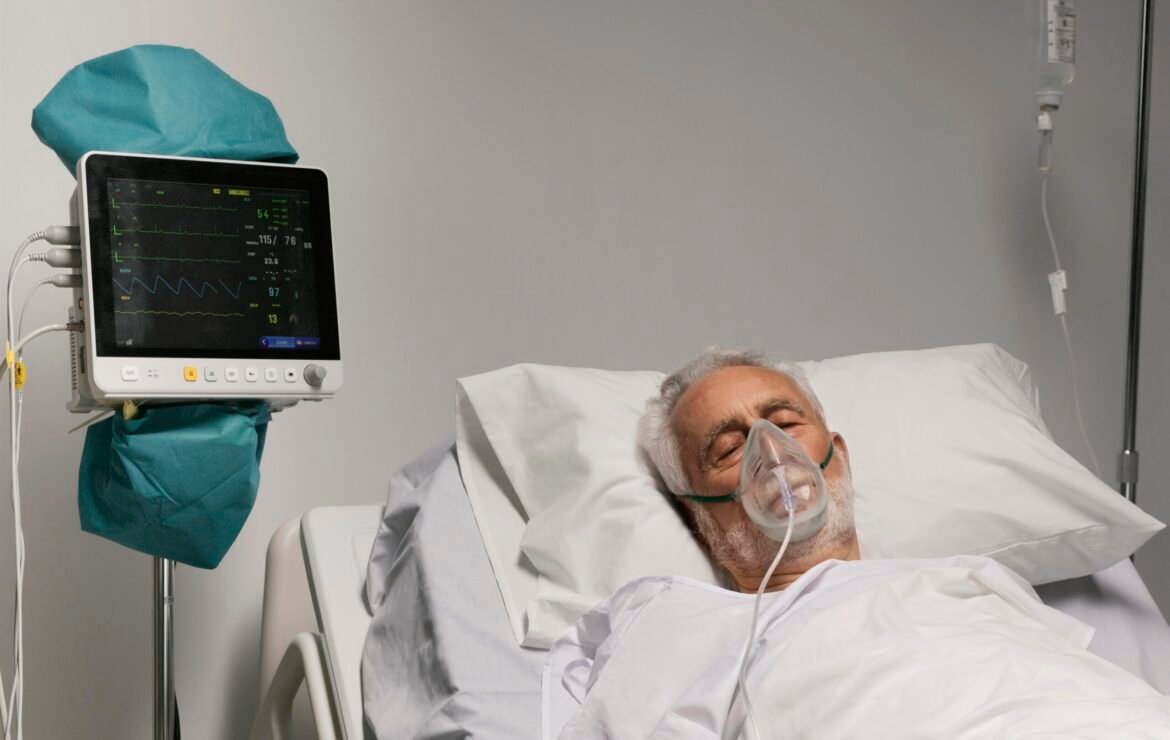How to set up an ICU at Home Effectively

The ICU (intensive care unit) at home is an exact copy of a hospital intensive care unit, with the only difference being that care is more personalized by similarly trained healthcare professionals at home. An ICU arrangement at home requires the use of medical equipment such as an IV stand, a pulse oximeter, an oxygen cylinder, a suction machine, an alpha mattress, a nebulizer, a DVT pump, etc. Besides the clinical staff, who will be available 24 hours a day to care for the patient and respond to their continuously changing needs.
What is the Purpose of the ICU at Home?
ICU at Home is an advanced system that carries out the treatment and keeps track of the condition of people who:
- Patents that are in critical condition
- Have reached the terminal stage of their illnesses
- Are convalescing after operations and have been provided with post-surgery complications
- Furthermore, it is also meant for those who are suffering from respiratory disorders or for patients who require assistance because of their organ failure.
In certain situations, individuals require relocation from the hospital’s Intensive Care Units to receive critical care at home due to multiple medical, psychological, and social factors. That is to say, a home intensive care unit.
What medical equipment is needed to create a good ICU at home?
Hospital Bed: Customizable and comfortable to keep you moving and avoid bed sores.
Heart Monitor: Creates and oversees cardiac rhythm and pressure, oxygen levels, and other life signs.
Emergency Medications & First Aid Kit: Painkillers, including Ibuprofen, Antibiotics, and any prescription medications.
Pulse Oximeter: Measures oxygen saturation in the pulse and records the pulse rate utilizing a ventilator and Oxygen Support for patients who require assistance with breathing.
Nebulizer: Designed to help patients with breathing difficulties (e.g., asthma, COPD)
Catheters & Urine Bags: Essential for individuals with walking impairments.
Infusion Pump – This ensures the correct flow of IV fluids and medications.
Suction Machine – Airway clearance is used for patients with respiratory problems.
Defibrillator (as needed): Necessary for patients at risk for a cardiac event.
Type of ICU at Home
The patient categories serviced in an Individual Hospital Unit determine the Types Of ICUs in a particular hospital. Some of the most important classifications of Intensive Care Units are:
- Medical Intensive Care
- Surgical Intensive Care
- Long Term Acute Care Intensive Care Unit (LTAC ICU)
- Coronary care and cardio-thoracic care (CCUs / CTUs)
Advantages of Home-Based ICU Care
Selecting Critical Care offered at home brings with it many advantages, including:
- Reduced expenses
- More individualized attention (24/7 one nurse to patient ratio)
- Continuous medical supervision
- Lower risk for Hospital-Acquired Infections
- Improved recovery times.
Both the physician and the patient have numerous benefits when opting for critical care at home.
Benefits for physicians:
These include faster postoperative healing due to increased adherence to the treatment plan, lower rates of nosocomial infections, enhanced satisfaction resulting from improved clinical outcomes, reduced length of stay, which improves efficiency and throughput, and a decreased risk of secondary infections.
Benefits for patients:
Improved adherence, enhanced recovery speed due to the comfort and convenience of being at home, and significant savings, as professional home health care is 60-70% cheaper than comparable hospital services, where patients must share beds and wait to be seen. Furthermore, sped up discharges mean a swifter return to normalcy post-hospitalization.
Conclusion
Establishing an ICU at home involves methodical planning, having the proper tools, and medical supervision. Here at Home Care by LCH, we offer skilled nursing services that include setting up a physical ICU at home alongside trained attendants, caregiver monitoring via webcam, equipment leasing, and constant supervision to ensure top-quality care is provided at all times. Reach out now to schedule a consultation with our services if you need assistance with the home settings of your ICU.








